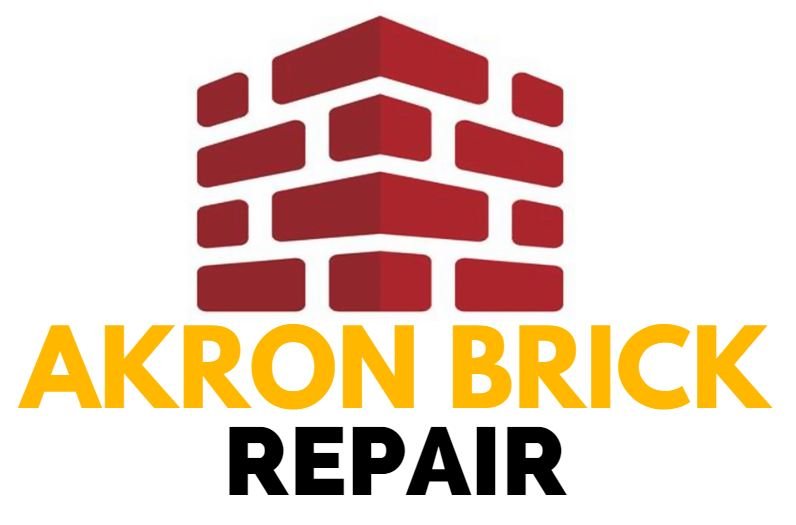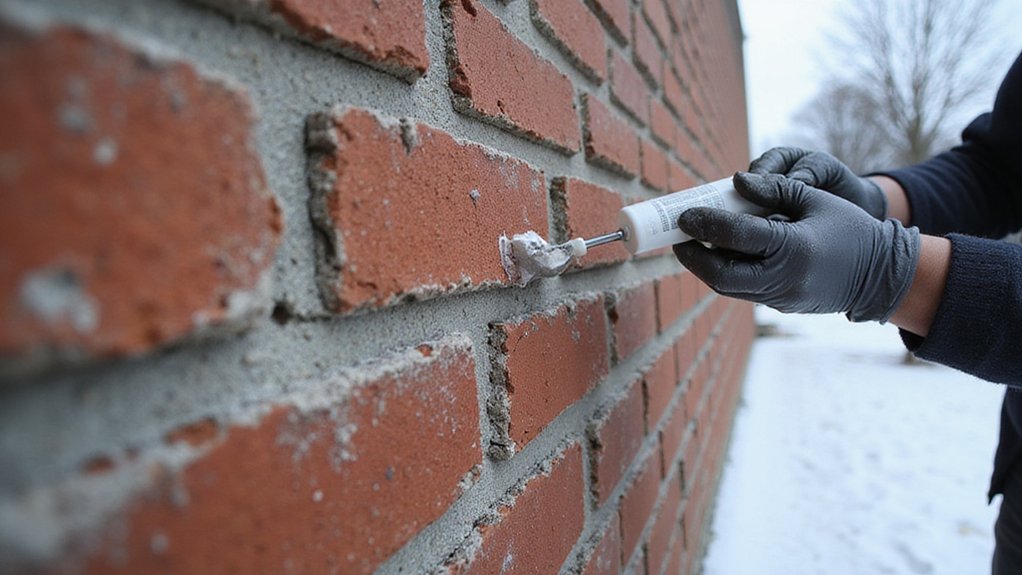Winter in Akron can wreak havoc on your brick walls, turning minor imperfections into costly repairs. You’ll want to stay ahead of potential damage by understanding how freeze-thaw cycles affect masonry. From hairline cracks to mortar erosion, your home’s exterior faces significant challenges during these harsh months. Would you know how to protect your investment before the first snowflake falls?
Understanding Winter’s Impact on Brick Masonry
When winter descends on Akron, brick walls face significant challenges that can compromise their structural integrity and appearance. Freezing temperatures create moisture expansion risks that can crack and weaken your brickwork. Tuckpointing services can help prevent further deterioration by addressing mortar joint damage caused by these harsh winter conditions. You’ll want to understand how temperature fluctuations cause water trapped inside bricks to freeze and expand, potentially causing micro-fractures and long-term damage. These cycles of freezing and thawing put immense stress on your masonry, gradually breaking down mortar joints and creating vulnerabilities. Protecting your brick walls requires proactive recognition of winter’s destructive potential and strategic maintenance approaches.
Essential Pre-Winter Inspection Techniques
Recognizing winter’s potential for brick damage naturally leads to the importance of thorough pre-winter inspections. You’ll want to carefully examine your brick walls for any existing cracks, moisture issues, or deteriorating mortar that could worsen during freezing temperatures. A professional softwash cleaning can help remove debris and identify potential problem areas. Expert brick repair mortars can be used to address minor damage and prevent further deterioration during the harsh winter months. Pay special attention to expansion joint inspection, as these critical areas can permit water penetration and subsequent structural damage. By methodically checking your walls now, you’ll prevent costly repairs and protect your home’s structural integrity against Akron’s harsh winter conditions.
Waterproofing Strategies for Brick Walls
Winter’s icy grip can wreak havoc on brick walls, making waterproofing a critical defense strategy for Akron homeowners. You’ll want to focus on surface consolidation techniques that strengthen your wall’s natural resistance to moisture. Carefully applying a high-quality water repellent can create an invisible shield that prevents water penetration and potential frost damage.
Don’t ignore small cracks or deteriorating mortar joints—these are prime entry points for moisture. By sealing these vulnerabilities, you’ll protect your home’s exterior and maintain its structural integrity through the coldest months. Professional application guarantees maximum protection and long-lasting results.
Mortar Repair and Restoration Methods
Brick walls can fall apart piece by piece if you don’t tackle mortar deterioration head-on. You’ll want to inspect your wall’s mortar joints regularly, looking for cracks, crumbling, or missing sections. Pointing techniques help you repair small areas before they become major problems.
When you’re ready to restore mortar, tuckpointing processes can save your wall’s structural integrity. Professional masons recommend removing damaged mortar carefully, cleaning the joints, and replacing it with fresh mortar that matches your existing wall. By staying proactive, you’ll protect your brick wall from Akron’s harsh winter damage and maintain its beautiful, sturdy appearance.
Drainage and Moisture Management
After carefully patching your mortar joints, managing moisture becomes the next critical step in preserving your brick wall’s long-term health. Protecting your investment means being proactive about drainage and moisture control:
- Implement groundwater monitoring systems to track potential underground water threats
- Install proper gutter and downspout extensions to direct water away from wall foundations
- Use condensation prevention techniques like vapor barriers and strategic ventilation
Your brick walls are more than just a structure; they’re a shield against Akron’s unpredictable winter conditions. By managing moisture effectively, you’ll certify your wall remains strong, dry, and resilient through challenging seasonal changes.
Protective Treatments and Sealants
The resilience of your brick wall depends considerably on selecting the right protective treatments and sealants. You’ll want to choose water repellents that create a breathable barrier against moisture while preventing winter damage.
Concrete sealers can be particularly effective in protecting your brickwork from harsh Akron temperatures and freezing conditions. By applying these treatments, you’ll shield your walls from potential cracking, efflorescence, and water infiltration. Remember that proper application matters as much as the product itself, so consider professional help if you’re unsure about the process.
Professional Maintenance and Expert Consultation
While professional sealants provide excellent protection, maneuvering complex brick wall maintenance often requires specialized knowledge and expert intervention. When facing Akron’s challenging winter conditions, consulting professionals can help you develop cost-effective solutions for long-term preservation.
Consider these expert strategies:
- Schedule annual professional inspections to catch potential issues early
- Work with local masonry specialists who understand regional climate challenges
- Request all-inclusive maintenance plans customized to your particular brick wall’s condition
Frequently Asked Questions
Can Snow and Ice Actually Damage My Brick Wall’s Structural Integrity?
Yes, snow and ice can seriously damage your brick wall. Inadequate insulation requirements and high moisture absorption weaken mortar, causing potential structural cracks and compromising your home’s protective barrier.
How Often Should I Inspect My Brick Walls During Winter Months?
You’ll want to visually inspect your brick walls every 4-6 weeks during winter, focusing on freeze-thaw prevention. Catching potential damage early helps protect your home’s structural integrity and maintains your property’s glory and resilience.
Are DIY Repair Methods Safe for Addressing Winter-Related Brick Damage?
You’ll want to be cautious with DIY repairs. While minor cracks can be sealed, extensive winter damage requires professional masonry repairs to safeguard your home’s structural integrity and avert costly future issues.
What Signs Indicate Serious Brick Wall Damage From Winter Conditions?
You’ll notice serious damage when your bricks start crumbling or spalling, revealing deep cracks, flaking surfaces, and structural weakness that threatens your home’s integrity and safety.
Will Homeowner’s Insurance Cover Winter-Related Brick Wall Damages?
Your coverage depends on the damage’s cause. If winter-related issues stem from poor maintenance, you’ll likely face premium increases and a complex insurance claim process that might not fully reimburse you.

